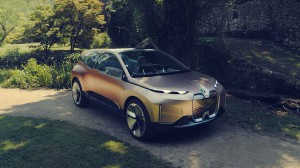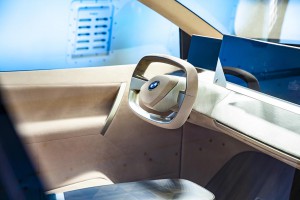BMW Group is making a big investment to build a battery-electric vehicle in one of its flagship assembly plants in Southern Germany that produces some of its most expensive models.
The German automaker said it plans to spend around 400 million euros, nearly $445 million, in its Dingolfing vehicle plant outside of Munich for production of the BMW iNext. In doing this, it is preparing for the manufacture of pure battery-electric and highly automated BMW cars at its largest European production location, BMW executives said.
“We firmly believe that, over the next few years, there will be more than just one solution worldwide for all our customers’ mobility needs. Instead, we expect to see a mix of different drive technologies.” explained Milan Nedeljkovic, member of the Board of Management BMW AG responsible for Production.
(BMW offers heaping helping of time in new products)
The BMW iNEXT will become the plant’s first pure battery-electric vehicle from 2021. Plug-in hybrids already make up nearly 10% of Dingolfing production.
With the launch of the BMW iNext in 2021, Plant Dingolfing will be capable of producing the right mix of fully electric vehicles, plug-in hybrids and models with combustion engines to suit demand on a single assembly line, Nedeljkovic said.
“Thanks to our flexible production structures, our plants are ideally equipped to meet the most diverse market needs,” he added.
The Dingolfing plant is not just gearing up for the transition to e-mobility, it is also preparing for standard production of highly automated vehicles, Nedeljkovic added.
“The BMW iNext is more than just a new model. It’s a pioneer for many key automotive innovations, especially autonomous driving. It is also paving the way for further rollout of these technologies over the coming years. The current structural measures for the iNext will also benefit other models built in Dingolfing in the future,” said Christoph Schröder, the plant’s director.
In August, production was suspended for four weeks to allow the plant to forge ahead with various construction and remodeling activities and prepare the location for new models like the BMW iNext.
(BMW unplugs range-extending i3Rex)
The plant benefits to a large extent from its years of expertise in composite and lightweight construction, as well as from structures created for the current generation of the BMW 7 Series. Production at the plant was already set up for handling an innovative mix of steel, aluminum and CFRP (carbon fiber reinforced plastic) for this model, with one of the industry’s longest paint drying ovens, for example.
The new model will be efficiently and flexibly produced on a single line with BMW 5 Series, 7 Series and 8 Series models in one of Dingolfing’s two assembly halls. However, in electrified and highly automated vehicles like the BMW iNext, some work content is distributed differently throughout the manufacturing process than for conventional vehicles. In electric vehicles, certain steps in drive train or assembly installation are omitted, for instance.
Special test stations must therefore be provided to validate these functionalities. This relocation of work content along the production line ultimately also required an extension of the assembly hall and partial restructuring. Construction work on the three-story assembly annex began back in summer 2018.
The BMW iNext not only paves the way for future technologies at the Dingolfing vehicle plant – it spans the entire site in a project that gets different parts of the plant working together in a unique way. As the BMW Group’s global competence center for electric drive train production, the plant is currently being massively expanded and further developed. Up to 2,000 employees are expected to work at the location in electric component production over the long term.
Dingolfing Works Council Chairman Stefan Schmid sees the BMW iNext as a milestone on the road to future mobility and proof that the long-term shift of competence at the Lower Bavarian location is bearing fruit.
“The transformation of our industry is in full swing. We in Dingolfing are right at the forefront. We are now reaping the benefits of having initiated change early on and thinking about future-oriented and competitive employment structures,” Schmid said.
(BMW Expands M8 Line-up with 2020 Gran Coupe and Gran Coupe Competition)
Plant Dingolfing is one of the BMW Group’s 31 production sites worldwide. Around 1,500 BMW 3 Series, 4 Series, 5 Series, 6 Series, 7 Series and 8 Series cars are produced daily at the Dingolfing automotive plant 02.40. In 2018, the plant produced a total of nearly 330,000 vehicles. Around 18,000 employees and 800 trainees currently work at the Dingolfing location.




